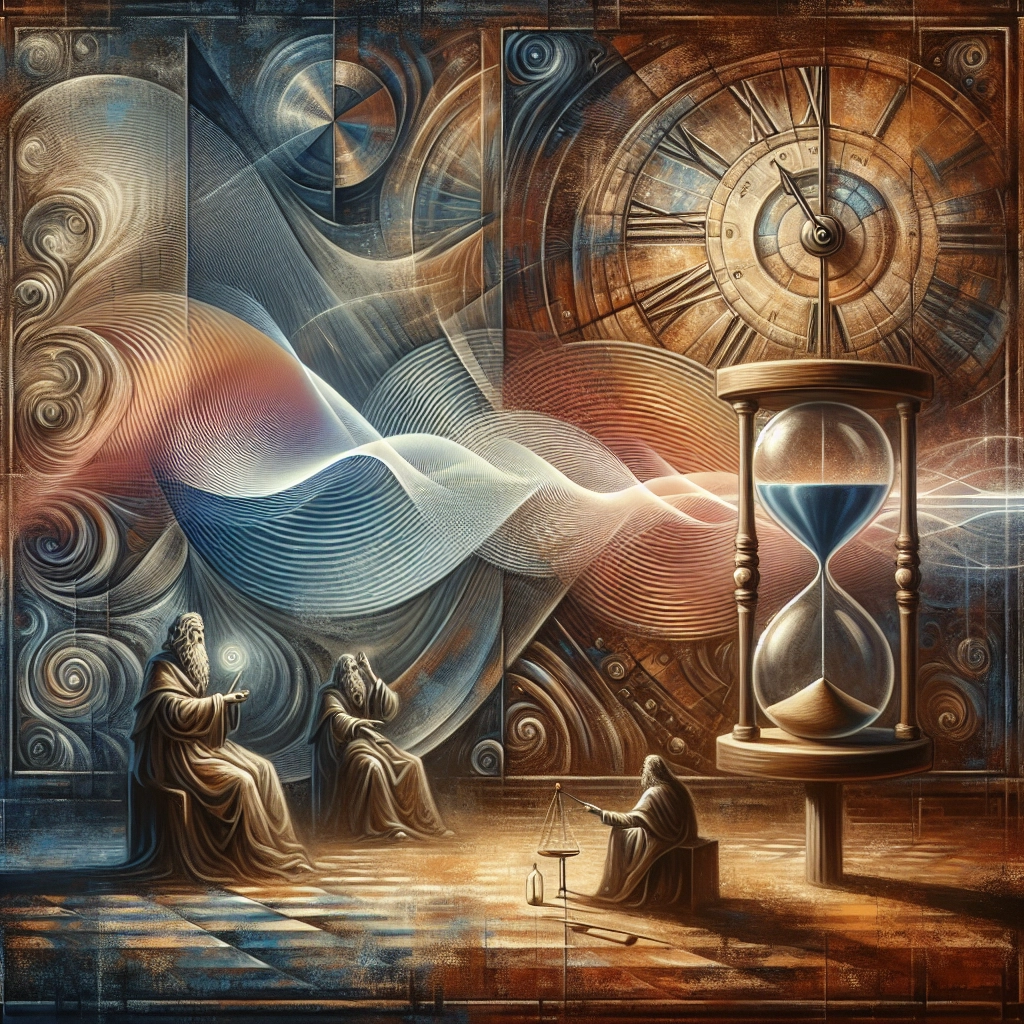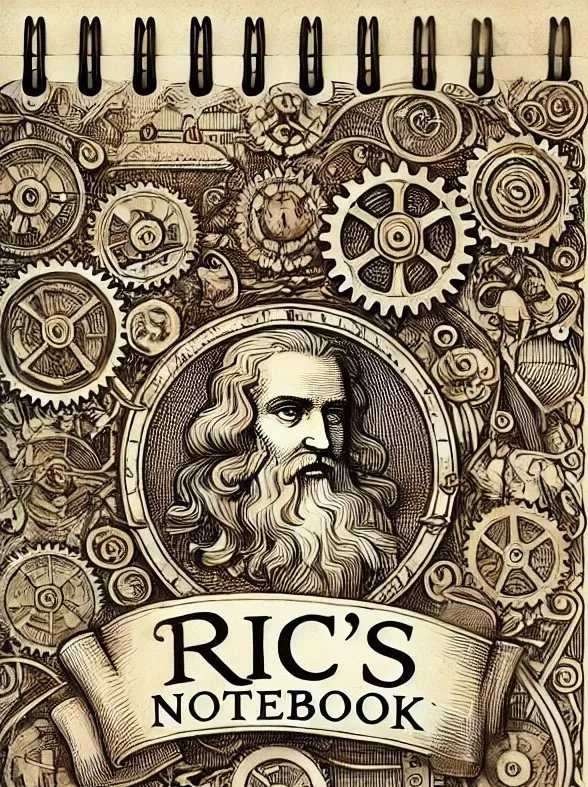
- Published on
- Authors

- Name
- ric de yuga 😄
🌌 Introduction: A Quantum Odyssey
Welcome, intrepid explorers of the quantum realm! Prepare to have your perception of reality turned upside down as we delve into the enigmatic world of the double slit experiment. This deceptively simple experiment has been baffling scientists and philosophers alike for nearly a century, challenging our understanding of the fundamental nature of reality. So, buckle up and get ready for a mind-bending journey through the looking glass of quantum mechanics!
🎭 The Double Slit Experiment: A Quantum Theater
🎬 Setting the Stage
Imagine a darkened theater, where the main character is a beam of particles – electrons, photons, or even atoms. The stage is set with a barrier, adorned with two parallel slits, and a screen placed behind it to capture the final act. As the particles stream towards the barrier, the curtain rises on one of the most perplexing dramas in the history of science.
🌊 The Wave-Particle Duality: A Shapeshifting Performance
In the quantum world, particles have a secret identity – they can behave like waves! When our particles pass through the double slit, they exhibit a phenomenon known as interference, creating a mesmerizing pattern of alternating light and dark bands on the screen. This interference pattern is a signature of wave behavior, suggesting that each particle somehow passes through both slits simultaneously, interfering with itself.
But here's the twist: when we attempt to catch the particles in the act by placing a detector at the slits, the interference pattern vanishes, and the particles behave like ordinary, localized objects. It's as if the particles know they're being watched and change their behavior accordingly!
🐱 Schrödinger's Cat: A Quantum Analogy
To illustrate the bizarre nature of the double slit experiment, let's introduce a special guest: Schrödinger's cat. In this thought experiment, a cat is placed in a sealed box with a device that has a 50/50 chance of releasing a deadly poison. According to quantum mechanics, until an observer opens the box and measures the system, the cat is simultaneously alive and dead, existing in a superposition of states.
Similarly, in the double slit experiment, each particle exists in a superposition of paths, passing through both slits at once until it is observed. The act of measurement collapses the wave function, forcing the particle to choose a definite path, just as opening the box seals the fate of Schrödinger's cat.
🔍 The Observer Effect: A Quantum Plot Twist
The double slit experiment reveals a profound truth about the quantum world: the act of observation fundamentally alters the behavior of the observed system. This phenomenon is known as the observer effect, and it suggests that reality at the quantum scale is not an objective, independent entity but is intimately connected to the act of measurement.
📏 The Heisenberg Uncertainty Principle
The observer effect is closely tied to another quantum quirk: the Heisenberg uncertainty principle. This principle states that the more precisely we measure one property of a particle (such as its position), the less precisely we can know another complementary property (such as its momentum). In other words, the act of measurement itself introduces an inherent uncertainty into the system.
🎩 The Participatory Universe: Reality as a Co-Creation
The implications of the observer effect are profound and far-reaching. If the act of observation can influence the outcome of quantum events, it suggests that consciousness plays a fundamental role in shaping reality. This idea lies at the heart of the "participatory universe" hypothesis, which proposes that the universe is not a static, pre-determined entity but is actively created and influenced by the participation of conscious observers.
In this view, reality is not a solitary performance but a grand, cosmic dance, where we are not mere spectators but active participants, shaping the very fabric of existence through our observations and interactions.
🎨 The Quantum Canvas: Painting Reality into Existence
The double slit experiment paints a captivating picture of the quantum world, where particles pirouette between possibilities, and reality is a canvas waiting to be filled by the brush of observation. Each measurement is a stroke of the brush, collapsing the wave function and bringing a particular aspect of reality into sharp focus.
As conscious observers, we are the artists of our own reality, co-creating the masterpiece of the universe with every glance, every measurement, and every interaction. The double slit experiment reminds us that the world is not a static, predetermined tableau but a dynamic, ever-evolving work of art, shaped by the interplay of quantum possibilities and our own participatory consciousness.
🧘♀️ The Metaphysical Implications: A Quantum Leap in Understanding
The double slit experiment has profound implications for our understanding of reality and consciousness. It challenges our classical notions of objectivity, determinism, and the nature of matter itself. If particles can exist in superposition states and be influenced by observation, then the very fabric of reality is far more malleable and interconnected than we ever imagined.
🌍 The Interconnectedness of All Things
The double slit experiment hints at the fundamental interconnectedness of all things at the quantum level. The ability of particles to exhibit wave-like behavior and interfere with themselves suggests that they are not isolated entities but are intimately connected, even across vast distances. This idea of quantum entanglement challenges our notion of locality and separateness, pointing towards a deeper, underlying unity that pervades the cosmos.
🧠 The Role of Consciousness in Shaping Reality
The observer effect in the double slit experiment highlights the crucial role of consciousness in shaping reality. If the act of observation can collapse the wave function and determine the outcome of quantum events, then consciousness is not merely a passive witness but an active participant in the unfolding of reality.
This realization has profound implications for our understanding of free will, causality, and the nature of the self. It suggests that our choices and observations are not inconsequential but are woven into the very fabric of the universe, influencing the course of events at the most fundamental level.
🔮 The Mystery of Quantum Randomness
Despite the profound insights offered by the double slit experiment, the quantum world remains shrouded in mystery. One of the most perplexing aspects of quantum mechanics is the apparent randomness of quantum events. Even with the most precise measurements, we can only predict the probabilities of different outcomes, never the exact result.
This inherent unpredictability has led some scientists and philosophers to propose that quantum randomness may be the source of free will, allowing for genuine spontaneity and choice in a universe that otherwise appears deterministic. Others argue that the randomness may be a reflection of our own ignorance, hinting at a deeper, hidden order that lies beyond our current understanding.
🌈 Conclusion: Embracing the Quantum Wonder
The double slit experiment is a testament to the extraordinary nature of the quantum world, where particles dance between possibilities, and reality is a canvas painted by the brush of observation. It challenges our deepest assumptions about the nature of reality, inviting us to question our place in the cosmic tapestry and to marvel at the profound interconnectedness of all things.
As we continue to explore the frontiers of quantum mechanics, let us embrace the sense of wonder and humility that comes with each new discovery. The double slit experiment reminds us that the universe is not a static, lifeless clockwork but a dynamic, participatory dance, where we are not mere observers but co-creators of reality itself.
So let us celebrate the beauty and mystery of the quantum world, recognizing that every measurement, every observation, and every choice we make is a brush stroke on the cosmic canvas, forever shaping the masterpiece of existence. In the face of such profound insights, we can only stand in awe, marveling at the exquisite complexity and interconnectedness of the universe that we are privileged to call home.
🔬 Equations: A Mathematical Interlude
For those who wish to delve deeper into the mathematical heart of the double slit experiment, let us briefly explore some of the key equations that describe this quantum marvel.
The wave-like behavior of particles is described by the wave function, denoted as Ψ(x, t). The wave function is a complex-valued function that encodes all the information about the quantum system, including its position, momentum, and other observable properties.
The time evolution of the wave function is governed by the Schrödinger equation, which can be written as:
iℏ ∂Ψ(x, t) / ∂t = ĤΨ(x, t)
where ℏ is the reduced Planck's constant, i is the imaginary unit, and Ĥ is the Hamiltonian operator, which represents the total energy of the system.
When a particle encounters the double slit, the wave function splits into two parts, representing the two possible paths through the slits. The resulting wave function can be written as a superposition of the two paths:
Ψ(x, t) = Ψ₁(x, t) + Ψ₂(x, t)
where Ψ₁(x, t) and Ψ₂(x, t) represent the wave functions for the particle passing through slit 1 and slit 2, respectively.
The interference pattern observed on the screen is a result of the constructive and destructive interference between these two wave functions. The probability of finding the particle at a particular position on the screen is given by the square of the absolute value of the total wave function:
P(x, t) = |Ψ(x, t)|²
When an observer measures which slit the particle passed through, the wave function collapses into one of the two possible states, Ψ₁(x, t) or Ψ₂(x, t), and the interference pattern disappears.
These equations provide a mathematical framework for understanding the double slit experiment and the wave-particle duality that lies at the heart of quantum mechanics. They represent the language of the quantum world, a language that continues to challenge and inspire us as we seek to unravel the mysteries of reality.
📜 References
- Feynman, R. P., Leighton, R. B., & Sands, M. (1965). The Feynman Lectures on Physics (Vol. 3). Addison-Wesley.
- Greene, B. (2004). The Fabric of the Cosmos: Space, Time, and the Texture of Reality. Alfred A. Knopf.
- Zeilinger, A. (2010). Dance of the Photons: From Einstein to Quantum Teleportation. Farrar, Straus and Giroux.
- Rosenblum, B., & Kuttner, F. (2011). Quantum Enigma: Physics Encounters Consciousness. Oxford University Press.
- Heisenberg, W. (1958). Physics and Philosophy: The Revolution in Modern Science. Harper & Row.
https://www.instagram.com/reel/DAZRqnkyTRg/?utm_source=ig_embed&utm_campaign=loading
